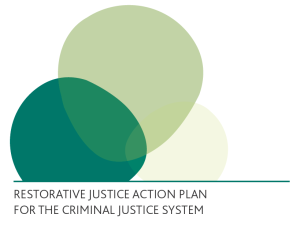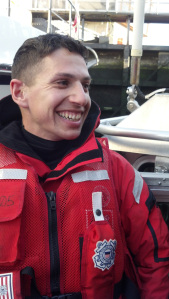News & Announcements
 The following statement issued by Senator Dick Durbin's office:
The following statement issued by Senator Dick Durbin's office:
Assistant Majority Leader Dick Durbin (D-IL), Chairman of the Senate Judiciary Subcommittee on the Constitution, Civil Rights and Human Rights, today announced he would hold a hearing on the school-to-prison pipeline next Wednesday, December 12, 2012.
The first-ever Congressional hearing on the matter will investigate the troubling increase in the number of young people sent to the juvenile delinquency system as a result of relatively minor school discipline issues. Since the 1990s, many students nationwide have been pushed out of the classroom and into the courts for relatively minor, non-violent offenses. Once young people enter the criminal justice system, they are more likely to fail in school and commit new crimes, creating increased public safety risks.
This “school-to-prison pipeline” also wastes scarce government resources on ineffective policies and has led to striking racial disparities. Over 70 percent of students in school-related referrals to law enforcement are African-American or Latino. The hearing will explore the problems with the pipeline as well as successful reforms and new initiatives to help end it.
I'm sensing a lot of vibrant discussion going on in the UK about how to reinvent the justice system to include a lot more restorative justice (see recent post here.) Here's the latest example via RJ Online which has published excerpts from a piece by Lawrence Kershen writing for The Law Society Gazette:
I posted about this a couple weeks ago, but here now from the Guardian is their own wrap-up of what the expert panel had to say during an online discussion about restorative justice.
Restorative justice: live discussion roundup | Social care network | Guardian Professional.
Here's an edited version of a longer film about Rozelle Primary School, which Terry O'Connell mentioned in last week's podcast about his trip to Zimbabwe. The school has been using restorative practices for nearly 10 years.
 The following comments are excerpted from Theo Gavrielides's blog piece, titled "The McDonaldisation of a community-born and community-led ethos: Reflections on the restorative justice week past." These comments were presented in the context of wrestling with questions of how governments – particularly in light of new policy initiatives to implement more restorative justice for adults in the UK – might avoid the watering down of restorative justice which ultimately belong to communities. The entire piece, which I recommend reading, can be found here.
The following comments are excerpted from Theo Gavrielides's blog piece, titled "The McDonaldisation of a community-born and community-led ethos: Reflections on the restorative justice week past." These comments were presented in the context of wrestling with questions of how governments – particularly in light of new policy initiatives to implement more restorative justice for adults in the UK – might avoid the watering down of restorative justice which ultimately belong to communities. The entire piece, which I recommend reading, can be found here.
 CoSA, Circles of Support and Accountability are a restorative practice for working with sex offenders which began in Canada in 1994. Now some in Bermuda, according to this article, would like to see the practice introduced there.
CoSA, Circles of Support and Accountability are a restorative practice for working with sex offenders which began in Canada in 1994. Now some in Bermuda, according to this article, would like to see the practice introduced there.
Bermuda’s justice system is due for change in its approach to cases of sexual abuse, according to children’s welfare campaigner Sheelagh Cooper.
In a bid to transform the way Bermuda treats its most dangerous criminal offenders, Ms Cooper has joined forces with the Women’s Resource Centre to bring restorative justice experts to the Island.
 The Restorative Justice Council in the UK published this significant bit of news this week:
The Restorative Justice Council in the UK published this significant bit of news this week:
The Ministry of Justice set out a strategy to build access, capacity and awareness of restorative justice across the Criminal Justice System, in a Restorative Justice Action Plan, published today at the start of International Restorative Justice Week.
A recent Joint Justice Inspectorates report found that restorative justice in the UK is limited by 'patchy' availability across the country, gaps in access across the stages of the justice system and inconsistent quality of restorative justice being delivered. This action plan aims to tackle these limitations.
 Nicholas Bradford describes himself as a lifelong student of conflict and education at his new blog, "Restorative Justice – in the Puget Sound". In a post from November 8, titled "Restorative Justice in the Coast Guard?? Really? Yes, really!!" Bradford describes a situations in which a "physical altercation resulted from continued verbal sarcasm/jokes (harassment)." The normal discipline procedure would involve formally documenting the case. "If this were a serious offense the members could have been 'Masted,'" writes Bradford, "which is a formal hearing by the CO [commanding officer]. There are no lawyers or burden of proof (similar to principal’s freedom). The members could be confined to the base, they could be sanctioned pay, and/or they could be demoted.
Nicholas Bradford describes himself as a lifelong student of conflict and education at his new blog, "Restorative Justice – in the Puget Sound". In a post from November 8, titled "Restorative Justice in the Coast Guard?? Really? Yes, really!!" Bradford describes a situations in which a "physical altercation resulted from continued verbal sarcasm/jokes (harassment)." The normal discipline procedure would involve formally documenting the case. "If this were a serious offense the members could have been 'Masted,'" writes Bradford, "which is a formal hearing by the CO [commanding officer]. There are no lawyers or burden of proof (similar to principal’s freedom). The members could be confined to the base, they could be sanctioned pay, and/or they could be demoted.
In this situation, however, the CO, "After having several conversations with his staff and the members involved, both those in the altercation and the members who witnessed it, he assigned an apology letter and a learning opportunity to the members." The letters they wrote focused on the harassment policy and the impact their actions had on the junior shipmate who witnessed and reported the incident.
Then Bradford writes, "What I find remarkable is the next step. The Commanding Officer asked both members to read their work in front of the whole Station."
What are Restorative Practices? from Christin Clark on Vimeo with students from Philadelphia, teacher Neil Geyette, formerly of West Philadelphia High School, and IIRP trainer Steve Korr.
I'm afraid I caught wind of this a bit too late to participate or to spread the word. However, I still think it's noteworthy to point to an online discussion hosted by the Guardian newspaper in the UK that took place earlier today in the comments thread of the following post: Restorative justice: live discussion. The link I've posted will allow you to scroll down and read through the entire thread.
